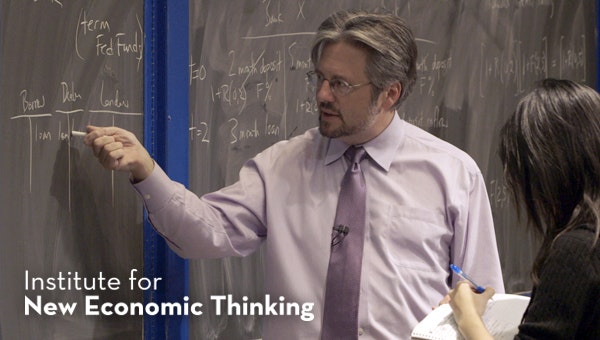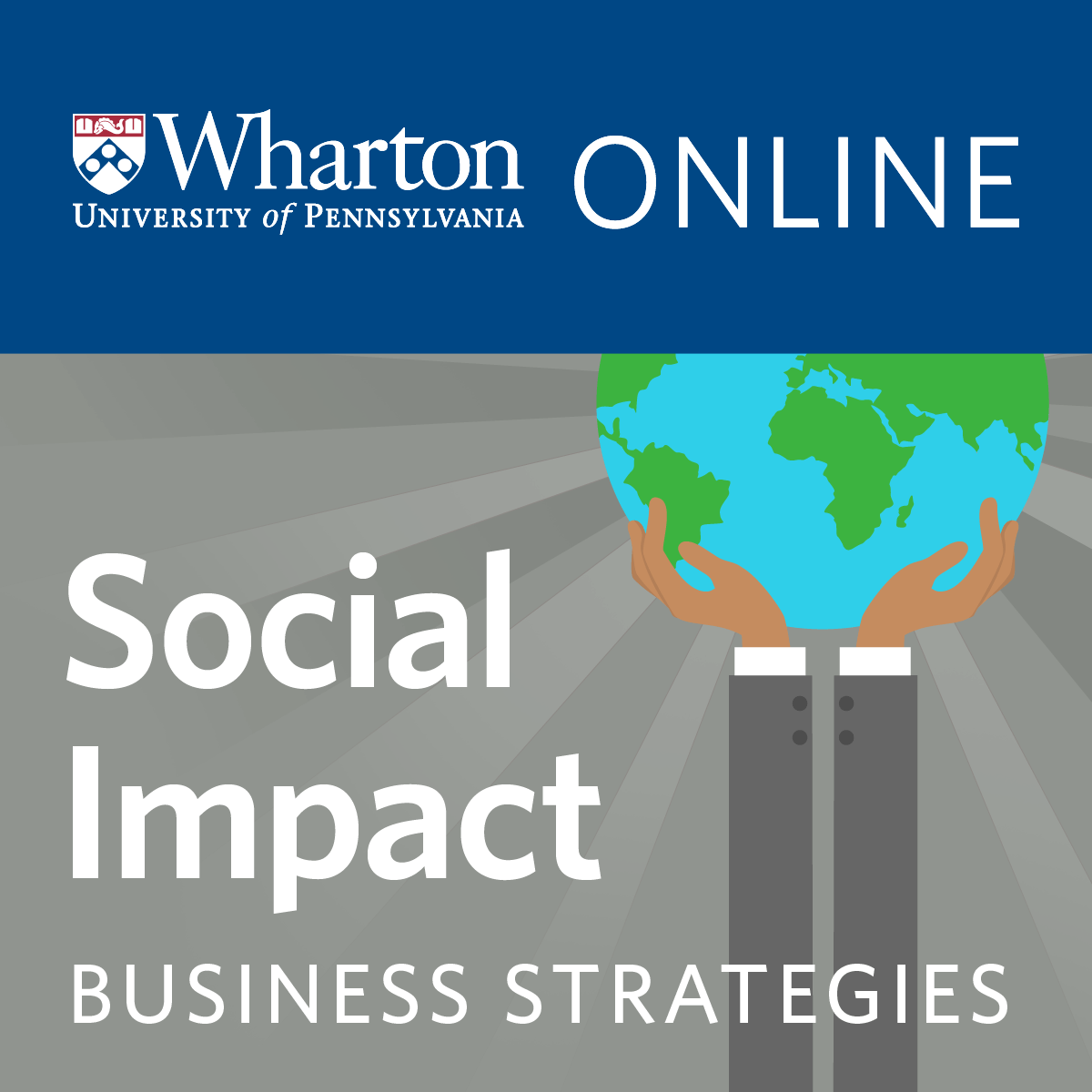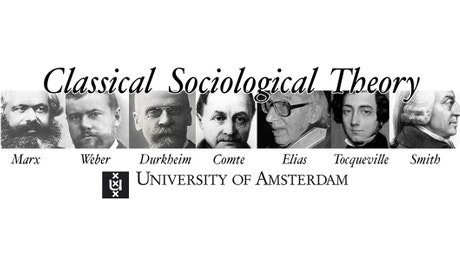Back to Courses









Social Sciences Courses - Page 42
Showing results 411-420 of 672

Economics of Money and Banking
The last three or four decades have seen a remarkable evolution in the institutions that comprise the modern monetary system. The financial crisis of 2007-2009 is a wakeup call that we need a similar evolution in the analytical apparatus and theories that we use to understand that system. Produced and sponsored by the Institute for New Economic Thinking, this course is an attempt to begin the process of new economic thinking by reviving and updating some forgotten traditions in monetary thought that have become newly relevant.
Three features of the new system are central.
Most important, the intertwining of previously separate capital markets and money markets has produced a system with new dynamics as well as new vulnerabilities. The financial crisis revealed those vulnerabilities for all to see. The result was two years of desperate innovation by central banking authorities as they tried first this, and then that, in an effort to stem the collapse.
Second, the global character of the crisis has revealed the global character of the system, which is something new in postwar history but not at all new from a longer time perspective. Central bank cooperation was key to stemming the collapse, and the details of that cooperation hint at the outlines of an emerging new international monetary order.
Third, absolutely central to the crisis was the operation of key derivative contracts, most importantly credit default swaps and foreign exchange swaps. Modern money cannot be understood separately from modern finance, nor can modern monetary theory be constructed separately from modern financial theory. That's the reason this course places dealers, in both capital markets and money markets, at the very center of the picture, as profit-seeking suppliers of market liquidity to the new system of market-based credit.

Engaging ELLs and Their Families in the School and Community
In this course, you will learn how to better and more successfully engage your ELL(s) and their families in the school and community. You will learn how to engage your ELL student in the classroom setting as well as in various aspects of the school including extracurricular activities and the inner workings of the school and education system. You will also be introduced to strategies for engaging the families of your ELL students in the school community and the wider community of your city and state. You will interact with a variety of case studies that highlight teachers, schools, and communities in different cities throughout the United States and the ways in which they successfully engage ELLs and their families. From sharing their experience, you will have the tools necessary to implement strategies and procedures for engaging your ELLs and their families.
Upon completing this course, you will be able to:
* Define the culture of ELLs in K-12 classrooms across the U.S.
* Recognize cultural impact on learning and formal education
* Assess your school’s engagement of ELLs and their families
* Incorporate culturally sensitive techniques to engage ELLs in the classroom and school
* Implement strategies for engaging ELLs’ families in the school and larger community
* Design a plan for engagement of ELLs and their families in your school
* Create a checklist for school and community resources for engaging ELLs and
their families

Time Series Analysis (ARIMA) with R
In this project, you will learn to conduct a thorough analysis of a time series data using ARIMA. The project explains the basic concepts of time series analysis and illustrates the same with hands-on activity on R Studio. It describes the types of time series data and its distinct components. The project covers how to conduct diagnostic tests to check for core assumptions of ARIMA, evaluating model process and orders from ACF, PACF graphs. Finally, it derives best fit model to forecast future values.

Politics and Economics of International Energy
Energy issues have always been important in international relations, but in recent years may have become even more important than in the past due to the widespread awareness of existing limits to energy sources and negative climate impacts. The course discusses global trends in energy consumption and production, various available scenarios for potential developments in the coming decades, the availability of oil reserves and the evolution of the oil industry. It then discusses natural gas and highlights the differences between oil and gas. It will also discuss renewable energy sources, nuclear energy and EU energy policy.
The course aims at providing students whose main interest is in international relations a background on energy resources, technology and economic realities to allow them to correctly interpret the political impact of current developments. It also aims at providing students, who already have a technical background in energy science or engineering, with the broad global view of energy issues that will allow them to better understand the social, economic and political impact of their technical knowledge.
ABOUT THE INSTRUCTOR :
Giacomo Luciani
Scientific Advisor for the Master in International Energy at the Paris School of International Affairs (PSIA) Sciences Po, Giacomo Luciani is also Adjunct Professor at the Graduate Institute of International and Development Studies, Geneva and Director of the Executive Master in International Oil and Gas Leadership. For the period 2010-13 he was appointed Princeton University Global Scholar, attached to the Woodrow Wilson School and the Department of Near Eastern Studies. His research focuses on the political economy of the Middle East and North Africa and on global energy issues.
RECOMMENDED BACKGROUND :
The course requires no special scientific, mathematical or economic background; all key concepts are clearly and elementarily explained. It is expected that it will be of interest to undergraduate and graduate students in schools where an equivalent course is not offered (this being the case for the vast majority of schools).
USPC
Sorbonne Paris Cité
Supported by Université Sorbonne Paris Cité
IDEX
Investissements d'Avenir
Funded by Investissements d'Avenir - 'ANR.
Info :
Course content : Licence Creative Commons BY NC SA

Motivating Gen Z Learners: What Parents and Teachers Need to Know
The purpose of this course is to equip parents and educators with the knowledge of motivational theories and their application in real-life contexts. Following the storyline of two children, Bob and Sarah, course participants are presented with a variety of problem scenarios. These depict common motivational issues that the participants can resolve using the motivational principles described in the course. Through the various sessions, parents and educators will progressively build a repertoire of strategies that enable them to better understand the Gen Z learners and to enhance their motivation to learn. Course participants will also have the opportunity to check their own understanding through quizzes and to interact with one another through discussion forums.
This course was created with the National Institute of Education at Nanyang Technological University, Singapore.
About National Institute of Education (NIE)
As an autonomous institute of the Nanyang Technological University, the National Institute of Education (NIE), Singapore, is Singapore’s national teacher education institute and plays a key role in the preparation of teachers and in the provision of teacher professional and school leadership development programmes. Its university-based teacher education programmes leverage the strong partnerships with the Ministry of Education and Singapore schools to develop teachers who are grounded in theory and strong in practice. As an institute within a world-class research university, NIE also offers rigorous graduate education in the form of masters and doctoral programmes for local and international students.

THINK GLOBAL: TEACHERS TRAINING COURSE (IDP-ICE)
A group of seven European partners from Catalonia, Belgium, and Wales worked together on the Erasmus+ funded ‘Think Global’ project on global competence. The project seeks to address the following research question through development and piloting of practical classroom activities: What is global competence, and how can it be learned effectively?
The Think Global project explores, through international collaboration, how global competence is defined, taught, learned, and measured in the classroom. It offers a model of professional learning for teachers to support students in developing global competence and its relationship with ODS.
So, this training course is addressed to school teachers and other school stakeholders. The focus of the course is to empower school teachers to implement cross-curricular projects on global competence, and it is delivered in an open online platform. The course is divided into five modules. The first is an overview of cross-cultural theory on global competences, the theoretical framework and the research and studies developed on the topic. The second module is based on principles and strategies. The third module deals with methodologies and developing global competence programs. The fourth module is about project based learning. The last module of the course consists of designing a global competence project to be implemented in the classroom. Teachers can decide what they need to work to achieve their objectives. In this way, they can decide which modules they need to work on, however it can be interesting to develop a final project to develop all the modules. It can provide teachers with a deeper understanding and reflections about our subjects and the development of global competence.

From Freedom Rides to Ferguson: Narratives of Nonviolence in the American Civil Rights Movement
The Modern Civil Rights Movement is a significant landmark in United States history. This movement was a struggle for human rights directly challenging the nation to extend its democratic principles to African Americans and all peoples. This course sheds light on the often overlooked strategic planning that supported the direction of the events and is told by a voice intimately involved in the organization of movement—Dr. Bernard LaFayette, Jr. Topics include the history of the campaigns, the different coalitions and groups, philosophy and methods of nonviolent direct action, and the contemporary application of nonviolent conflict transformation. The course hosts several guest speakers, including Andrew Young, Reverend C.T. Vivian, Henry "Hank" Thomas, and Constance Curry.
Upon completion of this course, learners will be able to:
● Discuss the contributions and involvement of civil rights activists and leaders in the Civil Rights Movement (CRM) campaigns in the United States.
● Examine the chronology and phases of the Movement and CRM campaigns.
● Recognize and characterize the diverse activist groups involved in the CRM.
● Discuss Martin Luther King Jr.’s philosophy of nonviolence from a historical perspective.
● List and define the principles and strategies of nonviolence.
● Examine organizational and social change applications related to nonviolence.
● Identify the role of nonviolence in modern activism along with additional resources to broaden knowledge of principles of nonviolence.
● Recognize the application of nonviolence theories to activism, current issues, and everyday life.

Business Strategies for Social Impact
When is it good business practice to invest for social good? What are the most innovative and effective business strategies for developing positive social impact around the world? Designed by renowned Wharton professors Katherine Klein and Chris Geczy to help individuals, organizations, and investors bring about societal change, this course introduces the fundamentals of impact investing, and developing a business strategy that drives social impact. You’ll learn how to become a leader who cultivates purpose and inspires change, measure societal impact through evidence-based models, and invest in ventures effectively and meaningfully. By the end of this course, you’ll have a deep understanding of the realities of leading an organization with purpose, and be able to build successful strategies that bring impactful change to the world.

Classical Sociological Theory
This Massive Open Online Course (MOOC) will offer the participants an introduction into the most important classical sociological readings between the 18th and 20th century. Highly influential social science scholars, such as Karl Marx, Max Weber and Emile Durkheim, will be discussed during 8 sessions. Combined with small tests, based on the video’s and recommended readings, the participants will be encouraged to dive deeply into the complex texts and get familiar with classical sociological concepts that are still very relevant today.
The Power of Markets III: Input Markets and Promoting Efficiency
The final module of the Power of Markets course begins by further exploring firm behavior in imperfectly competitive market settings: how firms with monopoly power can increase profits through price discrimination; and the price-output combinations we can expect firms to select in cases of monopolistic competition and oligopoly. We will also analyze monopolies from an efficiency perspective and look at the effects of imperfect information on firm and consumer behavior. We will next turn to exploring input markets and what determines the demand for an input by a firm, an industry, and the overall market. We will also look at the factors that affect input supply and how the supply of an input interacts with demand to determinant input prices. We will use input market theory to analyze institutions and government policies such as the NCAA sports cartel, the minimum wage, Social Security, and immigration. Finally, we will address the concept of market efficiency and what government can do to promote it as well as how government intervention may diminish it.
